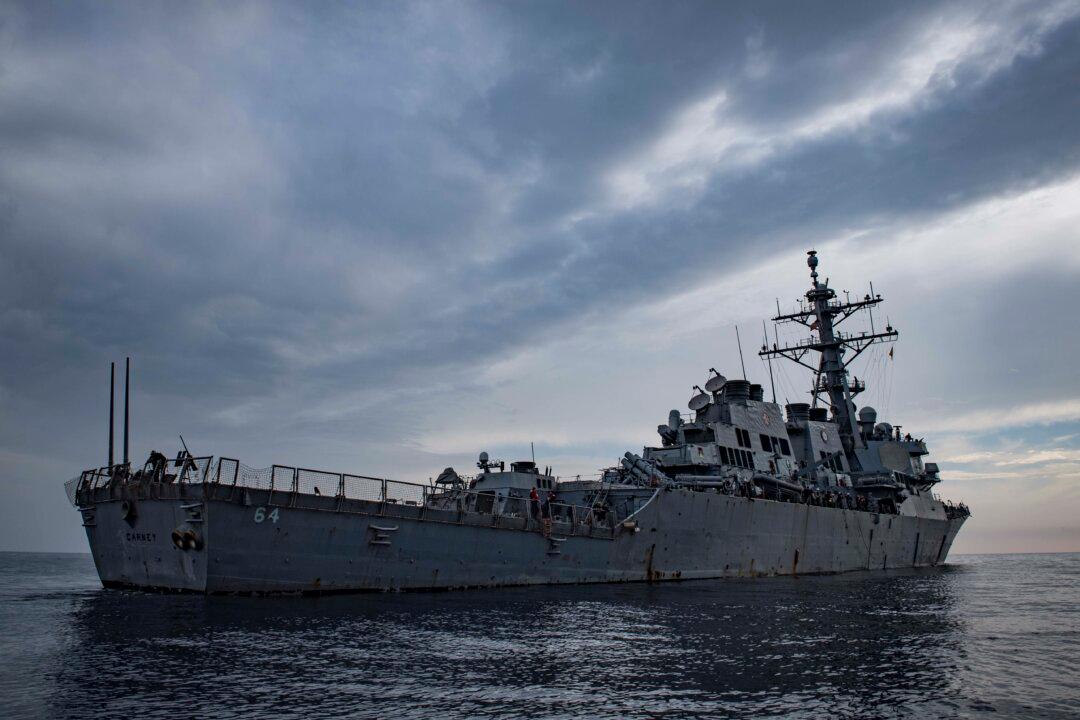A U.S. Navy vessel shot down three cruise missiles over the Red Sea on Oct. 19 that may have been headed toward targets in Israel, the Pentagon said.
The incident comes amid several drone and missile strikes on U.S. and allied forces that have resulted in multiple injuries to coalition forces in the Middle East.




